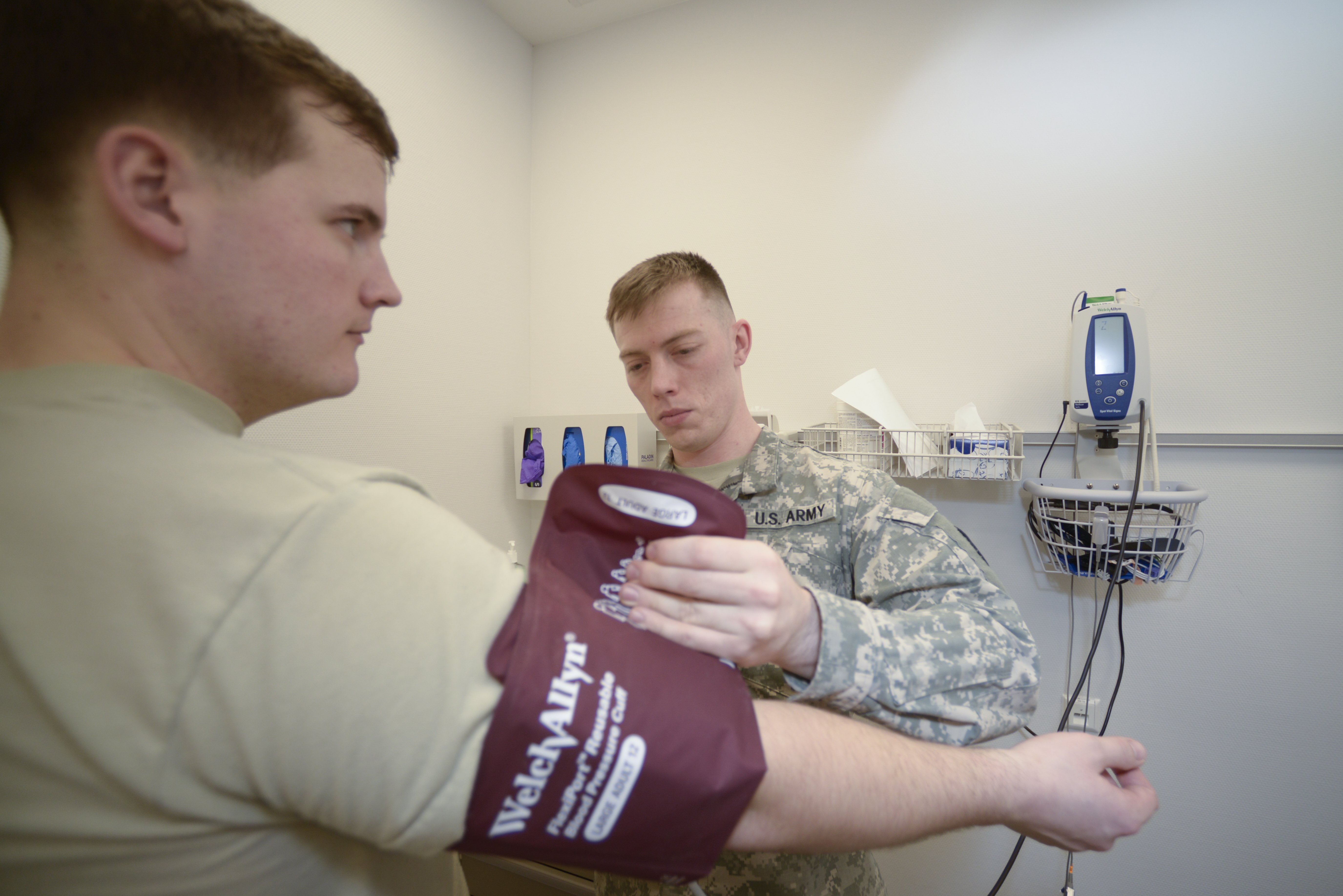
By Maj. Scott A. Maddox
Chief, Army Public Health Nursing
U.S.Army Health Clinic, Stuttgart
According to the Centers for Disease Control and Prevention, the top five leading causes of death among men are heart disease, cancer, unintentional injuries, chronic lower respiratory disease, and stroke. Heart disease is number one, killing one in every four males in the U.S.
Many of the health issues men face are preventable and treatable.
Men can set a healthy example for kids, family and buddies by getting health screenings. Create a plan (based on age, family history, and personal medical history) with the primary care manager.
Stay on top of your game: Men should see their primary care manager for regular checkups. Checkups can help diagnose issues early, before they become a problem, and sometimes before symptoms appear. Ask the doctor what screenings are needed and when. Track personal numbers such as blood pressure, blood sugar, cholesterol, and body mass index. And get vaccinated– immunizations help maintain health, regardless of age.
Get good sleep: Insufficient sleep can be associated with a number of conditions such as diabetes, cardiovascular disease, obesity, and depression. One’s sleep needs change with age. Seven to nine hours is ideal for adults.
Toss the tobacco: More than 16 million Americans are living with a disease caused by smoking. Tobacco remains the single largest preventable cause of death and disease in the U. S., killing more than 480,000 Americans each year. It’s never too late to quit. Quitting produces immediate and long-term benefits; quitting lowers the risk of heart disease, cancer, lung disease, and other illnesses. Avoid second-hand smoke, which can also cause heart disease, lung cancer, and stroke.
Be active: More than one-third of U.S. adults are obese. Adults should get at least two and a half hours of moderate-intensity aerobic activity each week, and muscle-strengthening activities at least two days a week. Work all major muscle groups including legs, hips, back, abdomen, chest, shoulders, and arms.
Eat healthy: Eat a variety of fruits and vegetables every day, as they are sources of vitamins, minerals and micronutrients that protect against disease. Choose healthy snacks. Limit food and drinks high in calories, sugar, salt, fat and alcohol.
